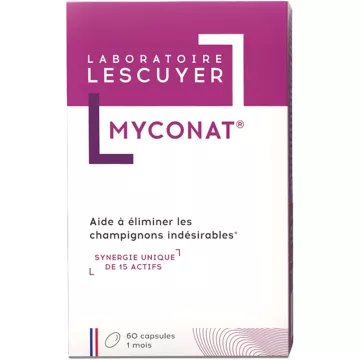

What is intimate hygiene and why is it important?
Intimate hygiene refers to the specific care given to the genital area to keep this part of the body clean and healthy. It is crucial for preventing infections, irritations and other health problems. Good intimate hygiene also helps you feel fresh and comfortable every day.
What products should be used for intimate hygiene?
For effective intimate hygiene, we recommend using products specially formulated for this sensitive area. These products should have a neutral or slightly acidic pH, compatible with the natural balance of intimate flora. Avoid perfumed soaps, harsh shower gels and products containing alcohols, which can upset this balance and irritate the skin.
How often should I practice intimate hygiene?
We recommend cleansing the intimate area at least once a day with a suitable product. However, during specific periods such as menstruation or after strenuous physical activity, it may be necessary to cleanse more frequently to prevent odors and infections.
How do I perform intimate hygiene correctly?
Intimate hygiene should be performed gently. Use lukewarm water and a mild cleanser, apply the product with clean hands, rinse thoroughly to remove any product residue. It's important to wash from front to back to avoid the spread of bacteria from the anus to the vagina or urethra.
What are the signs of poor intimate hygiene?
Poor intimate hygiene can manifest itself in symptoms such as itching, redness, irritation, unpleasant odours and even infection. If these symptoms appear, it's crucial to consult a health professional for diagnosis and appropriate treatment.
Can vaginal douches be used for intimate hygiene?
Douching is generally not recommended, as it can disrupt the natural balance of vaginal flora, increasing the risk of infection. Most health experts suggest that the vagina is self-cleansing and that external cleansing is sufficient to maintain good hygiene.
How important is it to choose the right undergarments for good intimate hygiene?
Choosing underwear made from breathable materials like cotton is essential for good intimate hygiene. These materials allow better air circulation and reduce the risk of dampness, which can encourage the growth of bacteria and yeast. Avoid synthetic materials, which can retain moisture and heat, creating an environment conducive to infection.
How does diet affect intimate hygiene?
A balanced diet plays a crucial role in maintaining the balance of intimate flora. Probiotics, such as those found in yoghurt or supplements, can help maintain this balance. Limit consumption of sugar and processed foods, which can promote the growth of yeast and other harmful organisms.
What advice should I follow during menstruation to maintain intimate hygiene?
During menstruation, it's important to change your sanitary protection regularly, every 4 to 6 hours. Choose fragrance-free products to avoid irritation, and make sure you follow a regular cleansing routine. Using specific products for the menstrual period can also help maintain pH balance and prevent infections.
How can daily activities influence intimate hygiene?
Daily activities such as sports, sedentary work or the frequent use of tight clothing can influenceintimate hygiene. Intense physical activity, for example, can increase perspiration in the genital area, requiring more frequent cleansing to prevent the proliferation of bacteria. Clothes that are too tight or synthetic can also retain moisture and heat, promoting irritation and infection. We recommend wearing loose, breathable clothing, and changing after strenuous exercise.
What role do probiotics play in intimate hygiene?
Probiotics are beneficial micro-organisms that help maintain the balance of vaginal flora, a key component ofintimate hygiene. They help prevent the proliferation of harmful bacteria and yeasts, thus reducing the risk of infections. Incorporating probiotics into the diet, either through the consumption of fermented products such as yoghurt or dietary supplements, can help preserve this vital balance.
Are there specific cultural practices that influence intimate hygiene?
Certain cultural practices can have a significant impact onintimate hygiene. For example, in some cultures, using water rather than toilet paper to clean oneself after going to the bathroom can help keep the area cleaner and reduce the risk of infection. However, practices such as female genital mutilation can cause severe damage and long-term intimate hygiene problems. It's important to consider cultural practices from a perspective informed by health and well-being.
How to manage intimate hygiene when travelling or away from home?
When traveling or on long journeys, maintaining good intimate hygiene can be more difficult, but remains crucial. It's a good idea to carry alcohol-free, fragrance-free intimate wipes for quick cleansing between showers. Avoid wearing tight clothing for long periods and change your underwear daily. If you use public toilets, pay particular attention to hygiene, possibly using single-use toilet seat covers.
What influence do hormonal changes have on intimate hygiene?
Hormonal changes, such as those that occur during pregnancy, menopause or menstrual cycles, can affectintimate hygiene by altering the pH of the genital area. These variations can make the area more susceptible to infection. It is therefore crucial to adapt intimate hygiene routines during these periods, using adapted products and being vigilant to the appearance of unusual symptoms. Consultation with a healthcare professional may be necessary to manage these changes effectively.